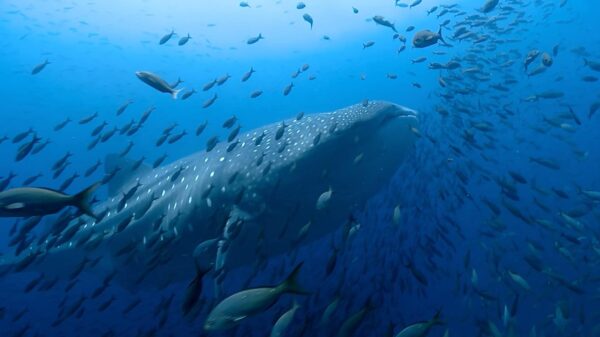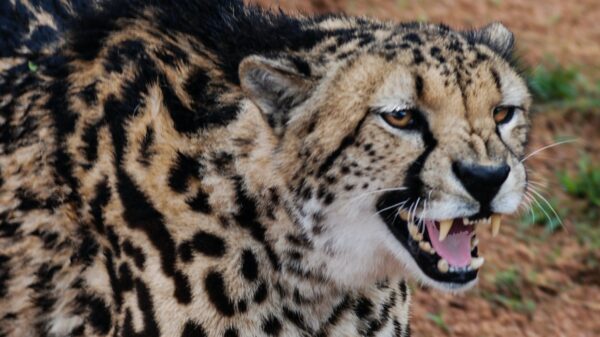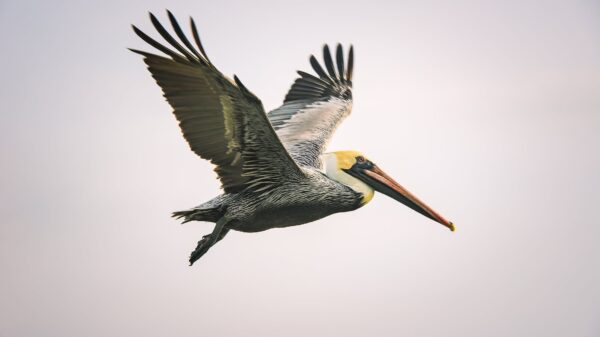Welcome! Have you ever stopped to think about how the world would look without animals? It’s a grim picture, right? With Earth Day around the corner, it’s important to discuss one of the most crucial aspects of our environment – biodiversity. Animals play an irreplaceable role in maintaining balance and contributing to our ecosystem in ways we don’t even realize. From pollination to regulating temperatures, join me as we explore just how vital animals are for our planet’s survival.
Introduction to Biodiversity
Biodiversity is the variety of life on Earth. This includes all plants, animals, and microorganisms. Each species has a unique role to play in the ecosystem.
For example, some animals are predators that help keep populations of other animals in check. Others are prey that provide food for predators. Some animals disperse seeds or pollinate flowers, helping to ensure the continued existence of plant species.
The loss of any one species can have ripple effects throughout an ecosystem. For example, the loss of a predator can lead to an increase in the prey population, which can then lead to overgrazing and the loss of vegetation. This in turn can lead to soil erosion and further loss of habitat for other animals.
Biodiversity is therefore essential to the health of ecosystems. It helps to ensure that ecosystems are resilient and can withstand changes such as disease outbreaks, climate change, and natural disasters.
How Biodiversity Helps the Ecosystem
Biodiversity is essential to the health of an ecosystem. By definition, biodiversity is the variety of plant and animal life in a given area. This can include different species of animals, different types of plants, and even different microorganisms. Each type of organism plays a role in the ecosystem, and when one type is removed, the entire system can be thrown off balance.
For example, let’s say there are three main types of trees in a forest: Oak, Maple, and Pine. The Oak tree provides food and shelter for squirrels, the Maple tree provides food for birds, and the Pine tree provides shelter for deer. If one of these trees is removed from the forest, it could have a ripple effect on the other organisms that rely on it. For example, if the Oak tree is removed, the squirrels will have to find a new source of food and shelter. This could cause them to compete with other animals for resources, or even die off completely. In turn, this would decrease the population of predators that eat squirrels, which would then lead to an increase in the population of rodents. As you can see, one event (the removal of one type of tree) can have a domino effect on an ecosystem.
The loss of biodiversity can also lead to an increase in disease. When there is less genetic diversity within a species (i.e. when there are fewer different types), individuals are more likely to share similar genes that
Types of Animals and Their Contributions to the Ecosystem
There are many different types of animals that contribute to the ecosystem in a variety of ways. Some animals help to keep the environment clean by eating other animals or plants. Other animals help to pollinate plants, which helps to produce food for other animals and humans. Some animals also help to spread seeds around, which helps to regrow forests and other vegetation.
Each type of animal has a different role to play in the ecosystem, and all of them are important for the health of the environment. Without biodiversity, the ecosystem would not be able to function properly.
How Human Activity Affects Biodiversity
Human activity has impacted biodiversity in many ways. One way is through habitat loss. This can happen when natural habitats are destroyed to make room for human development, such as farms, houses, or roads. Habitat loss can also occur when a habitat is changed so that it can no longer support the same variety of plants and animals. For example, if a forest is cleared for lumber, the animals that live there may no longer have food or shelter, and will likely die or move elsewhere.
Another way human activity affects biodiversity is by introducing non-native species into an ecosystem. These species may compete with native species for resources, or they may prey on them. They can also spread disease or parasites to which the native species have no immunity. Invasive species are one of the leading causes of biodiversity loss worldwide.
Human activity can contribute to climate change, which is having devastating effects on ecosystems across the globe. As temperatures rise and weather patterns become more extreme, many plants and animals are struggling to adapt. Some are moving to new areas where conditions are more suitable, but others are not able to keep up and are being driven to extinction. Climate change is expected to cause the biggest losses in biodiversity of any threat in the coming years.
Efforts Being Made to Preserve Biodiversity
There are many efforts being made to preserve biodiversity. One way is by setting aside areas where species can live without interference from humans. These are called reserves, and they can be found all over the world. Another way to preserve biodiversity is by managing habitats so that they can support more species. This includes things like controlling pollution and keeping forests healthy.
Conclusion
In conclusion, the importance of biodiversity and how animals contribute to the ecosystem cannot be overstated. Animals play an integral role in maintaining balance and stability in ecosystems, providing food and other resources for humans as well as other species. However, due to human activities such as deforestation, pollution, hunting and poaching, animal populations are decreasing rapidly. Therefore it is important that we take steps to protect our wildlife so that future generations can continue to benefit from their presence in our environment.










